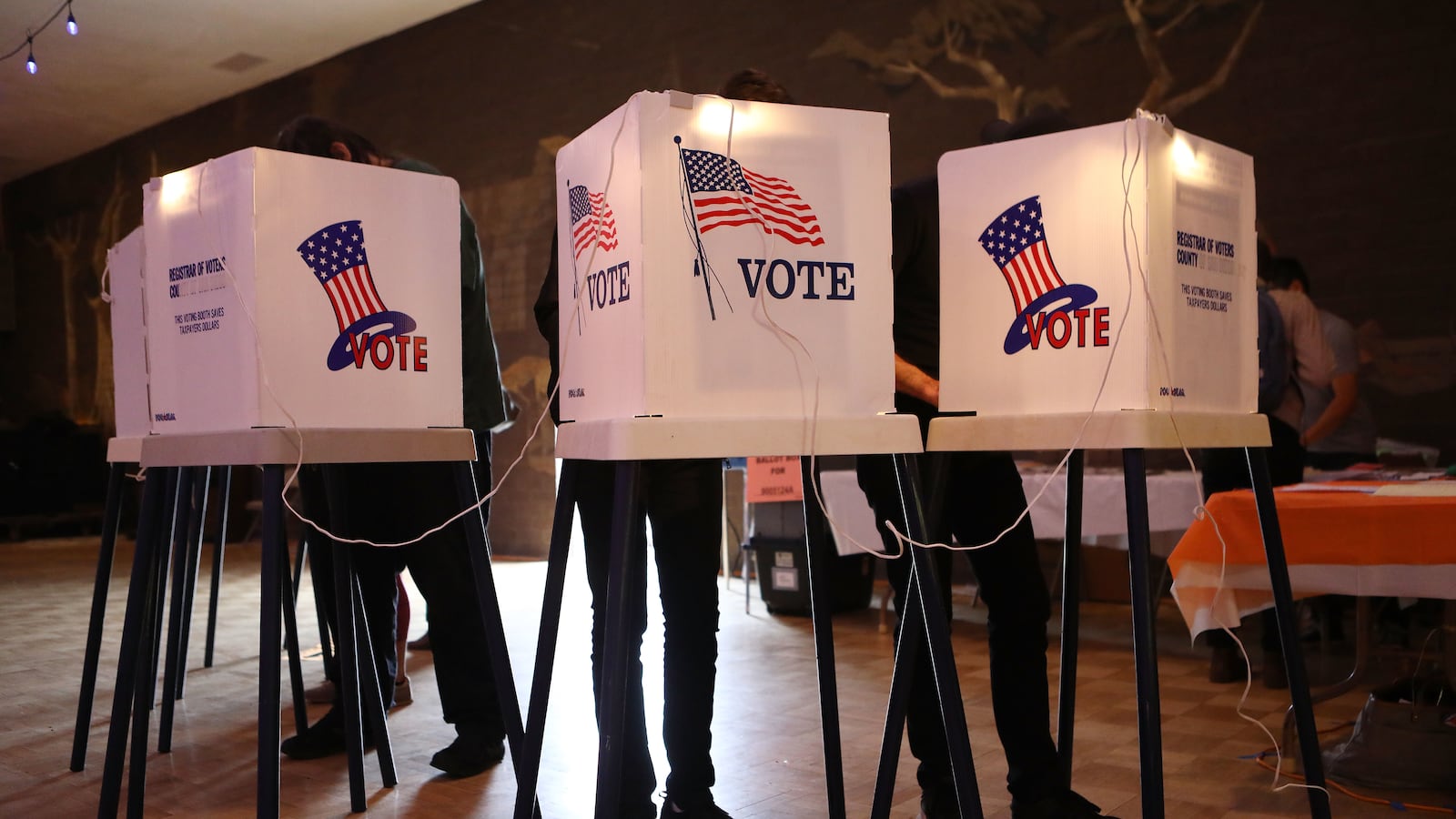As GOP-controlled state legislatures push through a wave of laws to restrict voting, a new report from the Voting Rights Lab suggests that Democratic state legislatures have enacted their own proposals to increase voting access at an even faster rate.
In the first six months of 2021, a “tidal wave” of voting rights legislation has resulted in the enactment of 153 new laws in 38 states—with over half increasing access to voting.
According to the report, obtained by The Daily Beast, as of June 13, of the 2,200 bills introduced across the country, 71 measures that expand voting access have been signed into law in 28 states. Meanwhile, in 18 states, Republican state legislatures have enacted 31 laws that the group says could decrease voter participation.
Voting Rights Lab, a voting rights advocacy organization, assembled the report using data from their tracker, which updates the progress of voting-related legislation from around the country in real time.
“The sheer volume of state legislative activity only tells one part of the story,” the report says. “What we are witnessing in real time across the country is a widening divide, whereby some states are working to strengthen and expand participation in our democracy just as a significant number of states work to curtail it.”
But, the report notes, the partisan leaning of a state has increasingly determined whether voting rights are restricted.
According to their data, with a few exceptions such as traditionally red states Louisiana and Indiana, the states that have enacted laws that expand voting access have voted for Democrats in recent federal elections. Conversely, the more restrictive voter laws are almost entirely coming from Republican-led states.
“Increasingly, one’s ZIP code determines a citizen’s ability to exercise their constitutional right to vote,” the report says.
And more changes could still come, as several state legislatures remain in session.
Texas lawmakers were considering a bill that would have restricted voting in a number of ways, but Democrats walked out of the chamber and denied Republicans a quorum, effectively killing the bill as the final minutes of the session ticked away. Texas Governor Greg Abbott has vowed to call back the lawmakers to complete work on the measure.
The report notes that efforts that could restrict access are currently moving through the legislatures of Ohio, Michigan, Wisconsin, and North Carolina—with varying chances of becoming law. Republican lawmakers in Pennsylvania are also advancing several bills to limit access, including one that would end so-called “no excuse” mail voting. Democratic Governor Tom Wolf, however, has pledged to veto legislation that could hurt voting access.
The movement on the state level comes as two bills moving through Congress face long odds at getting through the narrowly divided Senate.
On Wednesday, Sen. Joe Manchin (D-WV) offered a series of changes to the For the People Act, a bill that has been the primary vehicle for sweeping changes to expand the federal role in state-run elections. Manchin said earlier this month he did not support the legislation in its current form, but even if it’s changed to attract his support it’s unlikely enough Republicans will join him to break a filibuster.
Similar challenges loom for the John Lewis Voting Rights Act—a bill that essentially seeks to restore the federal oversight of election laws or redistricting plans deemed racially discriminatory that were struck down by the Supreme Court in 2013.
Megan Lewis, the executive director and co-founder of the Voting Rights Lab, said regardless of what happens on the federal level, the moves by state legislatures will continue to have a lasting impact on the right to vote.
“The proliferation of state legislation curtailing access to the polls, undermining the authority of election officials, and injecting partisanship into election administration make one thing clear: we need continued vigilance and activism in support of our democratic ideals at the state-level,” she said in a statement.






